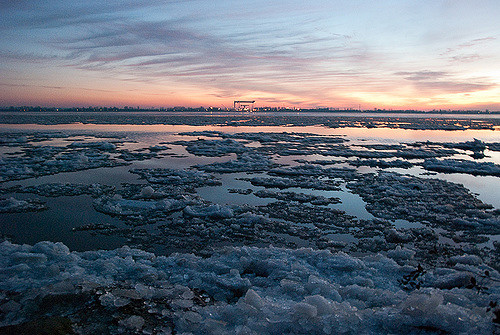Incoming Crisis

February 27, 2017
About 900,000 homes in Florida could be underwater for your great-grandchildren should climate change continue at its current rate according to a study done by the science journal Nature and Zillow. Climate change poses a serious threat to the future of our planet, and we know what must happen to avoid the disastrous effects of climate change: significantly cut down on fossil fuels and switch to renewable energy sources such as solar and wind energy by 2050.
Although this may seem like an unreasonable goal, it is very possible. There are still 33 years until this deadline, but we have to act fast. As the earth’s temperature gets hotter, more sea ice is being melted, causing ocean levels to rise. This leads to flooding and even hotter temperatures as water absorbs more heat than ice, creating a self-supporting cycle. In another study done by Nature, at the rate that we are going, climate change could potentially drive more than a million plant and animal species to extinction by 2050. Disruption or even collapse of ocean’s circulation could also happen as a result of climate change. If this were to happen, the transfer of heat in the climate system would be shifted in an immense way. Although climate-action advocates and economists who say the shift away from coal is happening regardless of policies, the problem is that waiting for this process to happen may make it too late. In March 2015, the global monthly average was found to pass 400 parts per million and will most likely never go back again.
The Renewable Electricity Futures Study found that an 80 percent renewables future is feasible with currently available technologies. If this were to become were to become reality, carbon emissions from the power sector would be reduced by 80 percent, and water use would be reduced by 50 percent.
However, we still have to overcome many obstacles before this happens. One big reason is that Americans rely heavily on fossil fuels which are staples of the global economy. Most Americans still drive cars that run on gasoline and would require a much action in order to change this. President Donald Trump has claimed that he would cancel the Paris Agreement in which nearly 200 countries agreed to a U.N.-led plan to hold warming “well below” two degrees Celsius. Pulling the US out of the Paris Agreement could set a precedent almost saying that the most wasteful country in the world does not need to cut down on carbon emissions.
Still, there are many things that people can do on an individual basis to help slow down and maybe stop climate change. One way is to cut down on eating beef or dairy products. It takes a lot to make these products including deforestation which is a top contributor to the rising carbon emissions. Other approaches include switching to more energy efficient light bulbs, insulating and sealing your home, or switching to fuel efficient or electric cars as energy production is also a big reason for climate change. Overall there are many things we can do to help fight climate change but everyone has to do their part.
